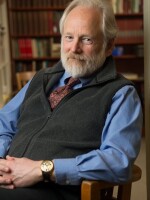Troubled times lead to grand schemes.
Recently, pundits like David Brooks of The New York Times have called for a new national history to be taught in schools as a way preserving American unity. This isn鈥檛 new. Our first 鈥済rand narrative鈥� depicted America as the triumphal product of people fleeing oppression for freedom and success in a new land. Our more recent master story rejects the first to focus on victimization, resistance, and conflict.
Both are purposeful caricatures. The uplifting saga of freedom鈥檚 progress developed because 19th century educators believed national unity was threatened by immigrants unwilling to assimilate into a homogeneous American culture. Ironically, the current narrative of perpetual conflict between victimizers and victims, of have-nots struggling against oppression by the haves, emerged as a challenge to the unity of post-World War II White America. Advocates of each approach claimed a monopoly on truth; confident that teaching their version of the national past would make America a better place.
It may be trite to say that the real story lies somewhere in the middle; that neither narrative is wholly accurate, though each is in part; but, trite or not, that may also be true. Americans have consistently demonstrated a capacity for making a reality of 鈥淓 Pluribus Unum鈥� and for generating a substantial degree of upward mobility.
At the same time, it鈥檚 clear that human nature doesn鈥檛 change simply because one crosses an ocean. We鈥檝e never been free of the prejudice, greed, fear, and resentment that lead to social, cultural, economic, and political conflict, often fought on racial, ethnic, or religious lines.
A more useful national narrative might be one seeking to reconcile those extremes, posing the question: 鈥淗ow has a country rife with so much actual and potential conflict managed to hold together for so long?鈥� Or, put differently: 鈥淗ow have Americans managed to stay Americans?鈥�
After all, the Founders believed they were betting against history by establishing a republic. Republics had always failed and, by the end of their lives, the Founders believed that we, too, had blown it. They had difficulty understanding Americans鈥� talent for adapting to changing realities by constantly re-inventing themselves.
Historian Alan Brinkley calls America an 鈥淯nfinished Nation鈥�, which, I鈥檇 submit, isn鈥檛 a bad way to frame a new national narrative.





